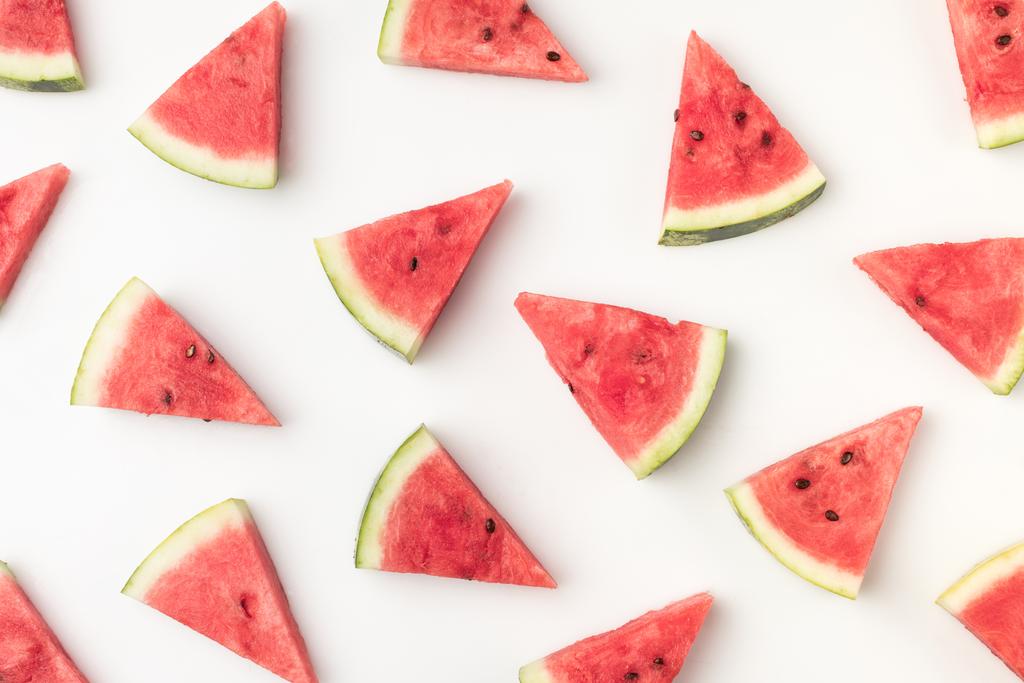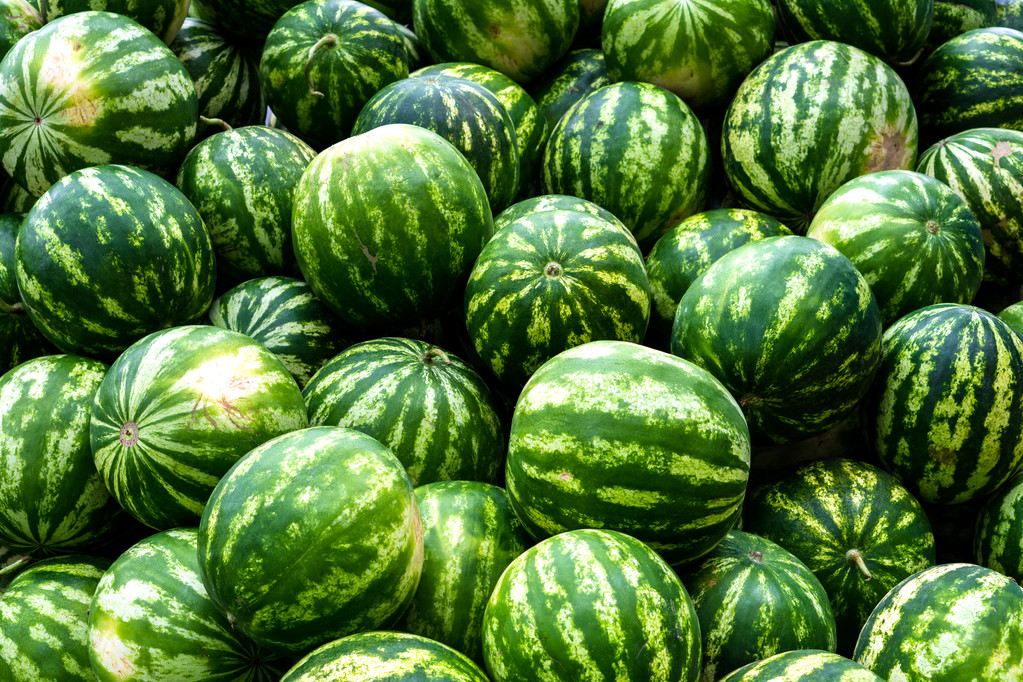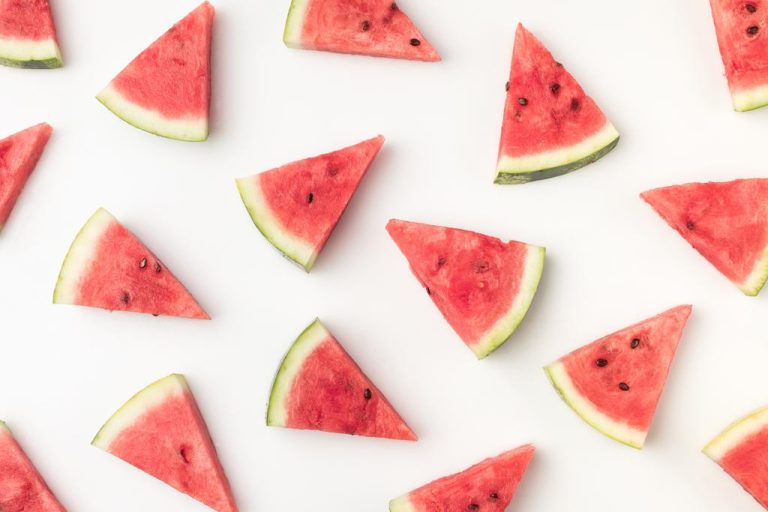Watermelons are not only refreshing on hot summer days, but are also very healthy. In terms of sustainability, however, things are not looking so rosy for the watermelon.
Watermelon: The Healthiest Nutrients
Plenty of water and nothing else? The name “watermelon” leads to a small fallacy. It is true that watermelons consist largely of water – namely up to 95 percent. But that doesn’t mean the fruit has nothing to offer nutritionally. On the contrary, the watermelon is a very healthy snack that also contains some important nutrients such as minerals and vitamins.
These key nutrients make watermelons healthy:
Lycopene: This phytochemical is an antioxidant that supports the immune system. As such, lycopene destroys free radicals that can cause cancer. It can also prevent cells from changing unnaturally. Watermelons contain a lot of lycopene with 4532 micrograms per 100 grams. For example, other fruits such as pineapple and apple do not contain this substance at all. The riper the watermelon, the more lycopene it contains.
Vitamin A: Vitamin A is found in watermelon in the form of carotenoids. Carotenoids are the pigments responsible for the yellow, red, or dark green color of food. Vitamin A is important for keeping eyes healthy, skin regenerating and hair growing. There are 245 micrograms of beta-carotene in 100 grams of watermelon. The apple cannot keep up with its 27 micrograms of beta-carotene per 100 grams of fruit.
Citrulline: Nutrients are not only found in the red flesh of the fruit, but also in the white flesh under the skin. This is considered the source of the amino acid citrulline. In the body, citrulline is converted into the amino acid arginine, which causes the blood vessels to dilate and blood flow is facilitated. This is good for heart and vascular health. US researchers have also found that arginine also has a potency-enhancing effect on men. Watermelon is one of the richest sources of citrulline.
Potassium: Potassium is important to transmit stimuli that muscles and heart send out. The mineral is also involved in regulating cell growth, blood pressure and the acid-base balance. Potassium also influences the release of certain hormones (e.g. insulin) and is important for carbohydrate utilization and protein synthesis. There are 112 milligrams of potassium in 100 grams of watermelon, which is rather low in comparison. 100 grams of apple also have a similar potassium content.
Caution: If you have a very sensitive stomach, watermelon should not be consumed in large quantities. Because the pulp contains bitter substances that could possibly lead to stomach problems. On the other hand, bitter substances are also very healthy
More than just water: nutritional values of watermelon
Because they contain so much water, watermelons are considered particularly figure-friendly.
These are the nutritional values of 100 grams of watermelon:
Calories: 31
Protein: 0.5 grams
Fat: 0.3 grams
Carbohydrates: 6.3 grams
Despite its sweetness, the watermelon contains relatively little sugar, namely around 6 grams. In comparison, bananas have a very high sugar content with 17 grams of sugar per 100 grams of fruit.

Please do not throw away: watermelon skin and seeds
Even the inconspicuous parts of the watermelon are healthy:
Peel: The peel of the watermelon is edible and contains a lot of dietary fiber that makes you feel full. It also contains amino acids that help the body build muscle, as well as some vitamins. You can simply nibble the peel or grate it and add it to the salad, pickle it, or use it to make smoothies. If you want to eat the peel, you should use watermelons from controlled organic cultivation.
Kernels: The kernels contain vitamins A, B and C, as well as unsaturated fatty acids and iron, magnesium and calcium. You can of course simply eat them or dry them first and then grind them and stir them into smoothies or yoghurt as a powder. Reddened, the seeds make a crunchy topping for the salad.

